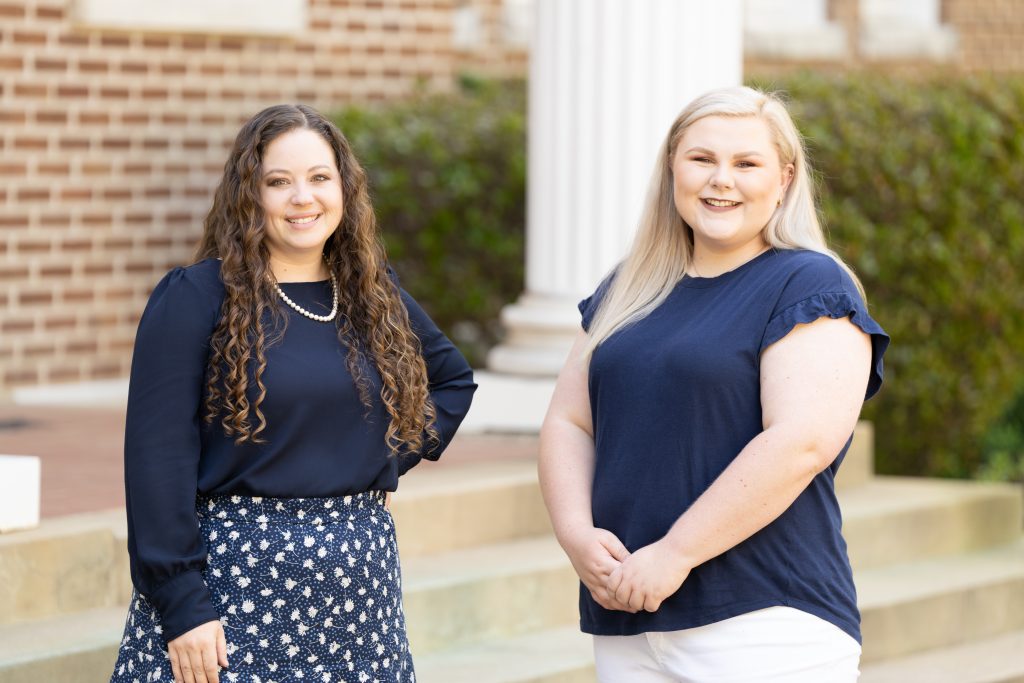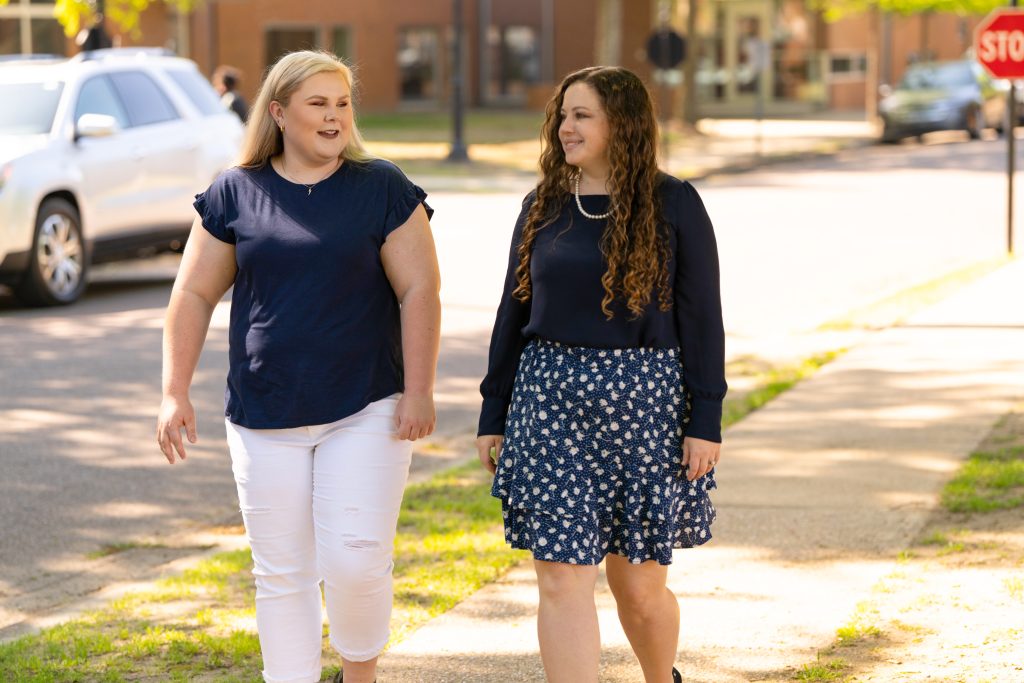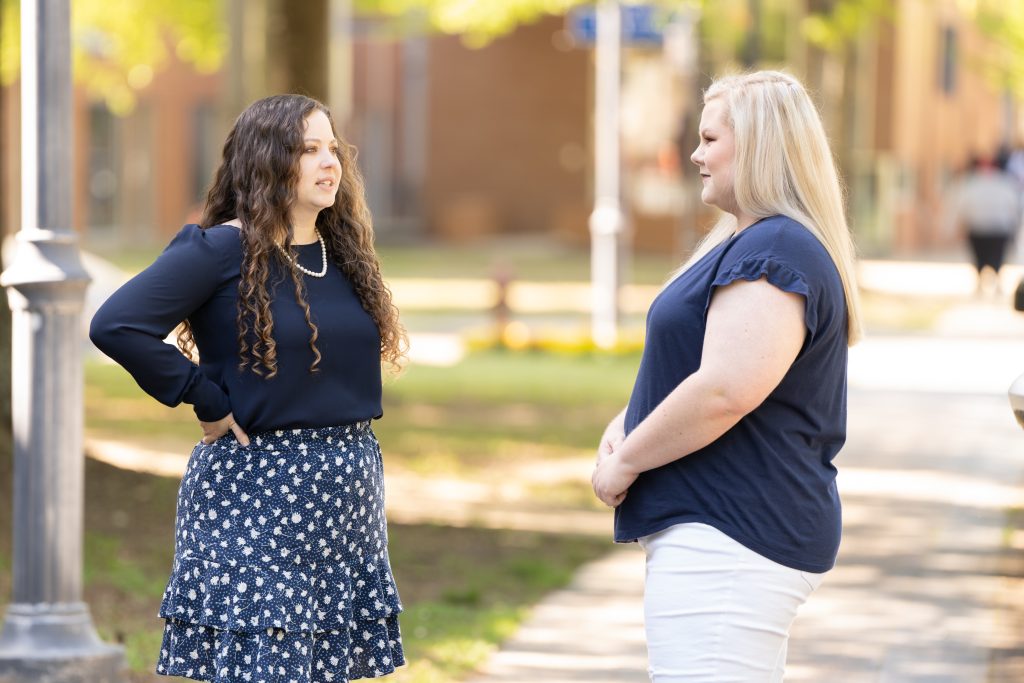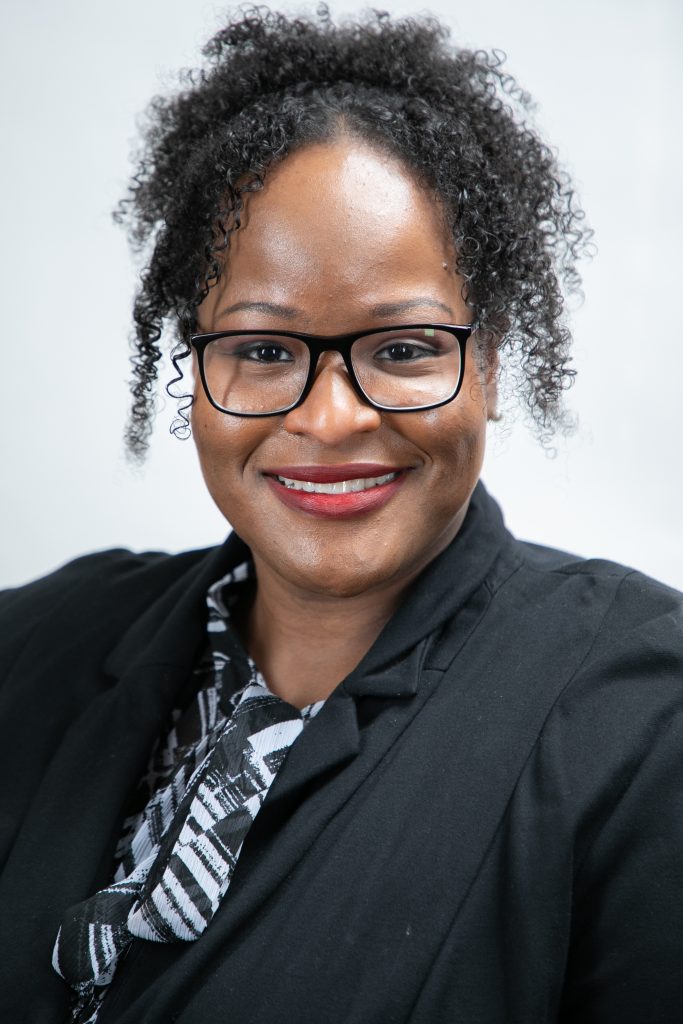Forward
MacKenzie Pearce has listened to the women of Mississippi.

After researching and observing different literature and news sources, Pearce realized one thing: southern women have been left out.
Since August, Pearce has contacted women across Mississippi. Black, white, conservative, liberal, sororities, fraternities, church groups and social organizations – she surveyed them all. The result was 87 respondents representing 39 organizations from all four congressional districts answering questions surrounding the movement of feminism in Mississippi.
Pearce follows scholar Verta Taylor’s Abeyance Theory of Women’s Movement, which states social movements do not just occur in isolated instances, instead, abeyance movements and movement organizations link one wave of peak mobilization to the next. In other words, movements do not happen by accident, and Pearce wanted to know who was moving in Mississippi.
Pearce explains the theory as “organizations provide constructive ways for activists to channel their political and social philosophy into organized action.”
As a political science major, everything is political for Pearce. “You can say, ‘Oh, no, I don’t partake in politics.’ But that in itself is a political decision,” explained Pearce.
The survey sent to participants offered a combination of multiple-choice questions and the ability to provide comments and feedback. Pearce praised the participants. It was evident participants provided thoughtful and open responses. One of the more fascinating and immediate findings was the average time among participants spent in the movement was 20 years. According to Pearce, this is an indication activism and organized change is not new to Mississippi women.Of the respondents, approximately 7.7% of organizations represented were conservative, 64.1% were nonpartisan and 28.2% were progressive.
“Culture is an important aspect of understanding abeyance in social movement organizations,” Pearce said. “Taylor believes that in order for women to stay committed to the movement, there must be an exchange of benefits that occur.

In other words, the movement benefits these women in certain ways, and in turn, the women benefit the movement by devoting their time and talent to its cause.”
Findings from the survey indicated friendship and networking were important benefits that these women gained or hoped to gain by being a part of their organization. The most important was the sense that they are making a positive difference. Of the women respondents, 89% believed the issues facing women in Mississippi are urgent, while 95% believed it’s necessary that their work continues. Participants had the opportunity to choose from a list of nine issues plus the ability to write in to identify important key issues for women across the state. Thirty-one percent identified equal pay as the leading issue, while 20% identified equal representation and 22% said reproductive healthcare. Upon reviewing the research, Pearce admits she was initially pessimistic. But after further review and reflection, she realized change has occurred for the women of Mississippi.

Said Pearce, “Until 2022, a key policy demand of many advocacy organizations in Mississippi was equal pay. Finally, the Legislature passed a bill regarding equal pay for equal work, the last state in the nation to do so.”
Pearce added that most recently the Mississippi Legislature extended postpartum Medicaid, a key issue among some of the advocacy groups, from 60 days to 12 months for mother and child.
“Overall, I think I found that there’s a movement. It might be an underground movement, but I think it’s thriving on all fronts,” Pearce said.
Before day one on campus, Pearce has been thankful for her research mentor Dr. Chanley Rainey, director of the Center for Women’s Research & Public Policy and associate professor of political science. While she may not recall it, Rainey met Pearce on a campus tour during her official visit to The W. Pearce said Rainey was instrumental for her making a college decision. But her influence hasn’t wavered, only intensified.
“There are not words to describe what she is for me. But if I could say that if you are dreaming up an adviser, or a mentor, she is the perfect picture,” Pearce said. “She has helped me with every question I’ve had. If she didn’t have the answer, she was going to find somebody who could get me the answer. And that is on all fronts. That’s academic advising, professional experience, internships, this research paper, next steps to take after college and help me find a sense of direction.”
Reflecting on her survey, Pearce wants the participants to know their work has not gone unnoticed.
BUILDING WOMEN LEADERS
Dr. Shahara’Tova Dente, director of women’s leadership and assistant professor of English and women’s studies, wants returns on her investment. Each day, she invests into her students.
“If we don’t continue to invest in training women leaders, we’re going to lose. There’s already not enough representation,” said Dente.

Dente highlights the fact that women have outnumbered men in higher education for years. But she and her graduate students aren’t seeing that translate to leadership positions in many careers. Dente wants to see more women CEOs, women head coaches and women leaders in STEM and technology. The journey to create leadership opportunities and provide leadership examples is more than a set of ideas or values for Dente. It’s deeply personal. It’s rooted in the core of her being.
Said Dente, “I want to be what I needed when I was going through school. One of the best ways to do that is investing in women’s leadership through education.”
Her dedication and influence have earned her the opportunity to chair one of the newest committees on campus — the Women’s Mission Advancement Committee. Founded earlier this year, the committee is made up of faculty, staff and alumni and is dedicated to furthering and bringing awareness to the university’s commitment to academic and leadership development for women.
Committee members are: Dr. Catherine Cotton, Dr. Chanley Rainey, Dr. Jill Drouillard, Linda Ross Aldy, Michaela Andres, Penny Mansell, Stephanie Salvaterra, Wesley Garrett and Tyler Wheat.
While still in it’s infancy, Dente has established three goals of the committee: adhere to the mission of the university to create leadership opportunities for women, bring awareness to events surrounding women’s leadership and facilitate resources to increase women’s leadership efforts.
Each March, the university celebrates Women’s History Month with programing and events sprinkled throughout the month. For Dente, this committee looks to expand this format to 12 months. She credits Rainey with laying a foundation that will be built upon.
President Miller believes the university has the ability to impact the state and the region with graduates who advocate for women’s leadership in all areas of life.
“Our NEW Leadership® program fosters advocacy for women in public service. Our W Leadership
Program prepares our students to become tomorrow’s leaders, and our Master of Arts in Women’s Leadership provides a combination of leadership theory and practical career-enhancing skills. Our Women’s, Gender and Sexuality Studies major and minor apply the study of gender and the status of women to policies affecting women and women’s issues. Our Music by Women Festival celebrates the accomplishments and creations of women composers,” explained Miller.
For her, it all started when the university opened its doors in 1885 and is integral part of the identity of the university. Miller said, “As the first state college for women, and as a university with a mission to advance educational and leadership opportunities for women, it is in our DNA to do this.”
